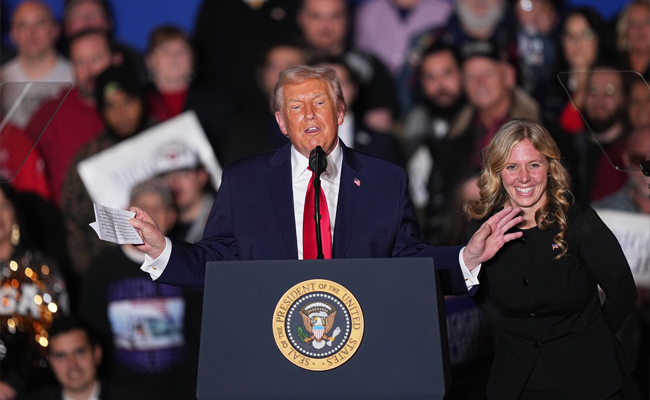San Francisco, May 30: Microsoft has surpassed Alphabet, the parent company of Google, in the market capitalisation for the first time in three years, becoming the third most valuable firm after Apple and Amazon globally.
According to a report in Investor's Business Daily late Tuesday, Microsoft had a market cap of $753 billion at the close of trading, almost $14 billion ahead of Alphabet.
Apple leads with a market cap of nearly $924 billion and Amazon is at distant second, with nearly $783 billion.
The credit for Microsoft's rise goes to its CEO Satya Nadella who has been strategically restructuring the company towards Cloud and Office offerings.
Driven by consistent growth in its Office and Cloud solutions, Microsoft posted a revenue of $26.8 billion and net income of $7.4 billion in its third quarter that ended on March 31.
"We are innovating across key growth categories of infrastructure, AI, productivity and business applications to deliver differentiated value to customers," Nadella said.
Office commercial products and Cloud services revenue increased 14 per cent -- driven by Office 365 commercial revenue growth of 42 per cent.
The Azure cloud offering had 93 per cent revenue growth. Revenue in Productivity and Business Processes was $9 billion and increased 17 per cent in the quarter.
Microsoft now has over 135 million active Office 365 business users, with 30.6 million Office 365 consumer users.
Revenue in Intelligent Cloud was $7.9 billion and increased 17 per cent.
Let the Truth be known. If you read VB and like VB, please be a VB Supporter and Help us deliver the Truth to one and all.
Itanagar (PTI): Eleven more bodies were retrieved on Saturday from the deep gorge in Arunachal Pradesh's Anjaw district, where a mini-truck on which 22 labourers from Assam were travelling fell, an official said.
With this, 17 bodies have been recovered from the accident site, Anjaw's deputy commissioner Milo Kojin said.
He said three more bodies will be brought out on Sunday.
The operation, being conducted by a joint team of the NDRF and Army, resumed at 6 am.
ALSO READ: Traffic fraud: Fake 'no-entry' sticker racket busted in Delhi, mastermind among 3 held
"The retrieval process was extremely difficult because of the treacherous terrain, and the gorge is very deep," Kojin said.
The operation was suspended around 4 pm due to low visibility and will be resumed on Sunday morning, he said.
"One person is still missing, and a search operation will be carried out tomorrow," he added.
The accident happened on the evening of December 8, around 40 km from Hayuliang towards Chaglagam in the district. On the evening of December 10, one survivor managed to climb out of the gorge and reach a nearby Border Roads Task Force (BRTF) labour camp, following which the authorities were alerted.
Six bodies were recovered from the gorge on Friday and handed over to their families on Saturday.

-exclusive_vb_52.jpeg)



